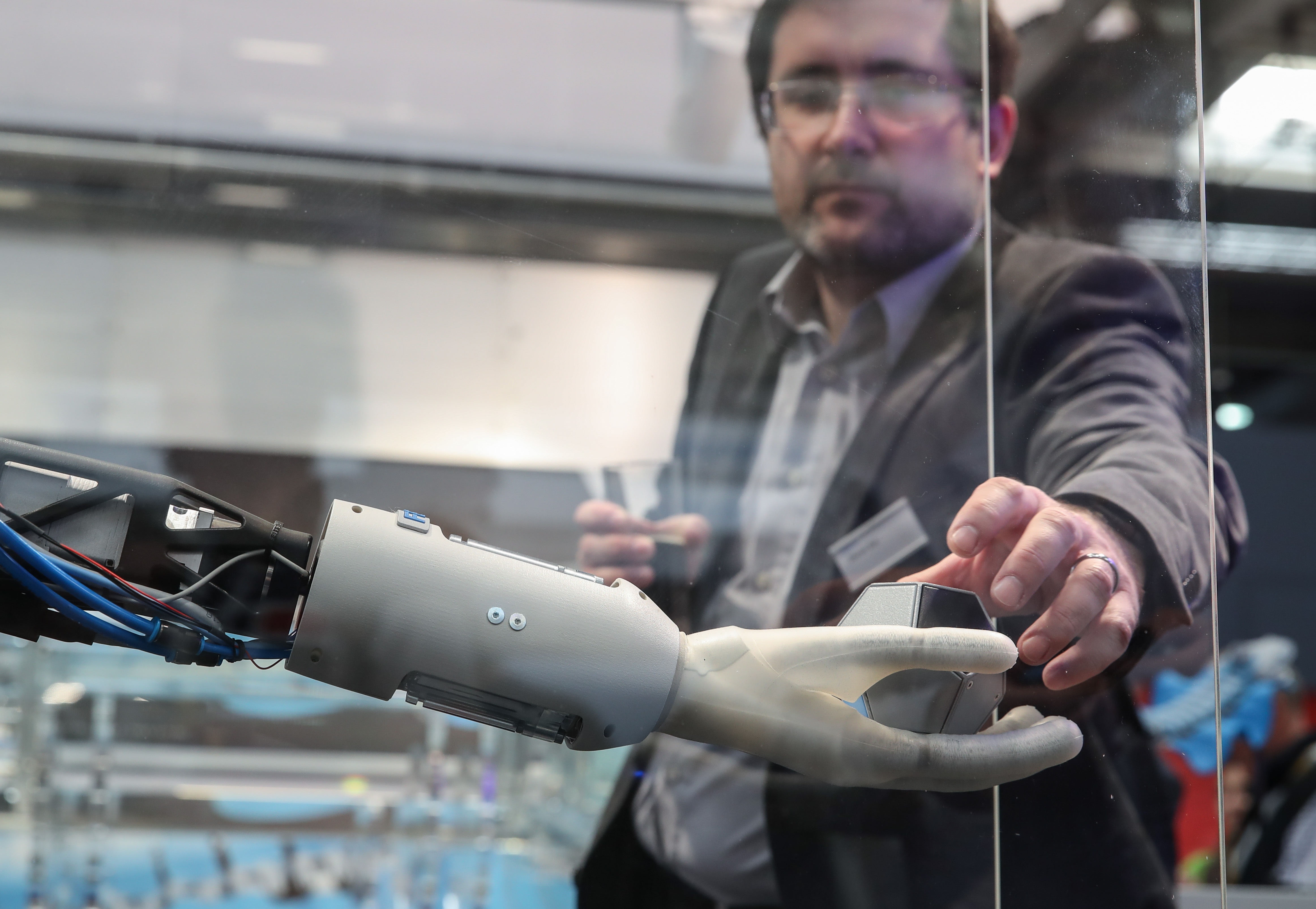Let's embrace the future with AI
- By Li Huiru
 0 Comment(s)
0 Comment(s) Print
Print E-mail China.org.cn, April 16, 2019
E-mail China.org.cn, April 16, 2019

Some are calling this the Fourth Industrial Revolution, while others say we are entering the Second Machine Age. Whatever you call it, the consensus is that artificial intelligence (AI), powered by big data, is gaining greater importance when it comes to productivity.
The new generation of information technology is taking many forms: robotics, the internet of things, big data, cloud computing, mobile internet, and more. However, AI is standing out and leading the current scientific revolution — it has even been called the oil of our time. The U.S. government has developed a plan to build the next generation AI, as has the Chinese government. Development of AI has now become a consensus priority.
In recent years, AI increasingly complements human labor in the workplace, as well as in our daily lives. A study by the management consultancy firm McKinsey suggests between 400 million and 800 million jobs will be automated by 2030. There are worries that AI will replace human workers, which may result in many lost jobs, and that AI will jeopardize young people and alienate them from the society.
If AI may steal our jobs and destroy society, then why on earth would we be developing it? To see it another way, advancements in AI technology have generated value and proved to be an effective aid in repetitive tasks and predictable processes, such as data collection and management. According to the Big Data Executive Survey 2018 carried out by the data-driven innovation consulting company NewVantage Partners, an overwhelming 97.2% of executives report that their companies are investing in building or launching big data and AI initiatives.
According to Xi Weihang, vice president of Ctrip, China's leading travel service provider, the company previously had as many as 15,000 service staff. They typically process 1 million calls and more than 1 million emails and other messages daily across platforms. Many of the enquiries are the same, and each one costs the company in customer service labor. The average cost of manually handling the return of an air ticket, to take one example, is 13 yuan. Although the company has moved its call centers to third-tier cities, the cost of customer service is still high. With the introduction of AI into some service procedures more than two years ago, such enquiries are now dealt with more efficiently. The vice president predicted that 70% to 80% of the company's calls may be processed by AI in the future.
AI is applicable in more scenarios than we could imagine. In the medical field, with assistance from AI, researchers can understand how a cell works and better understand genes and genetic sequencing. They can also use AI to personalize medicines. In the field of computer science, 5G, cloud computing and others, communications and computing power are being enhanced with limitless potential.
When historians look back at the first Industrial Revolution, they can say that people's way of life was initially disrupted. They were deprived of jobs as many tasks previously done by hand were replaced by machines. But over time they came to keep pace with the changes to society, and learned to get along with these new machines. Now we may make the same point for AI.
From the internet to AI, the development of science and technology is an irreversible trend, one that demands we all adapt. We need to face up to the fact that 30% of repetitive labor is being replaced by AI. Rather than responding with complaints or fear, we need to adjust so that we can reap the benefits of this change.
Talk about AI is often confined to the science and technology aspect of it. But in fact, science and humanity are both indispensable parts of society. We human beings are able to care for others, and when a certain task is done, we get a sense of fulfillment, while AI will never have that. That's our advantage.
Some concerns are justified, of course. For instance, we are all afraid of our personal data being shared improperly. However, AI is not the key factor in this issue, but human monitoring. We need to be aware of where data comes from and how it will be used. The government of today and tomorrow will surely be forced to take on ever more responsibility for the supervision of AI and data use. As humans, we have the right and the responsibility to choose.
Technology empowers humanity so that humanity is forever chasing after technology. No one knows precisely where we will be led. What we can do now is to take control and develop it proactively — with our own irreplaceable intelligence.
If you would like to contribute, please contact us at opinion@china.org.cn.






Go to Forum >>0 Comment(s)